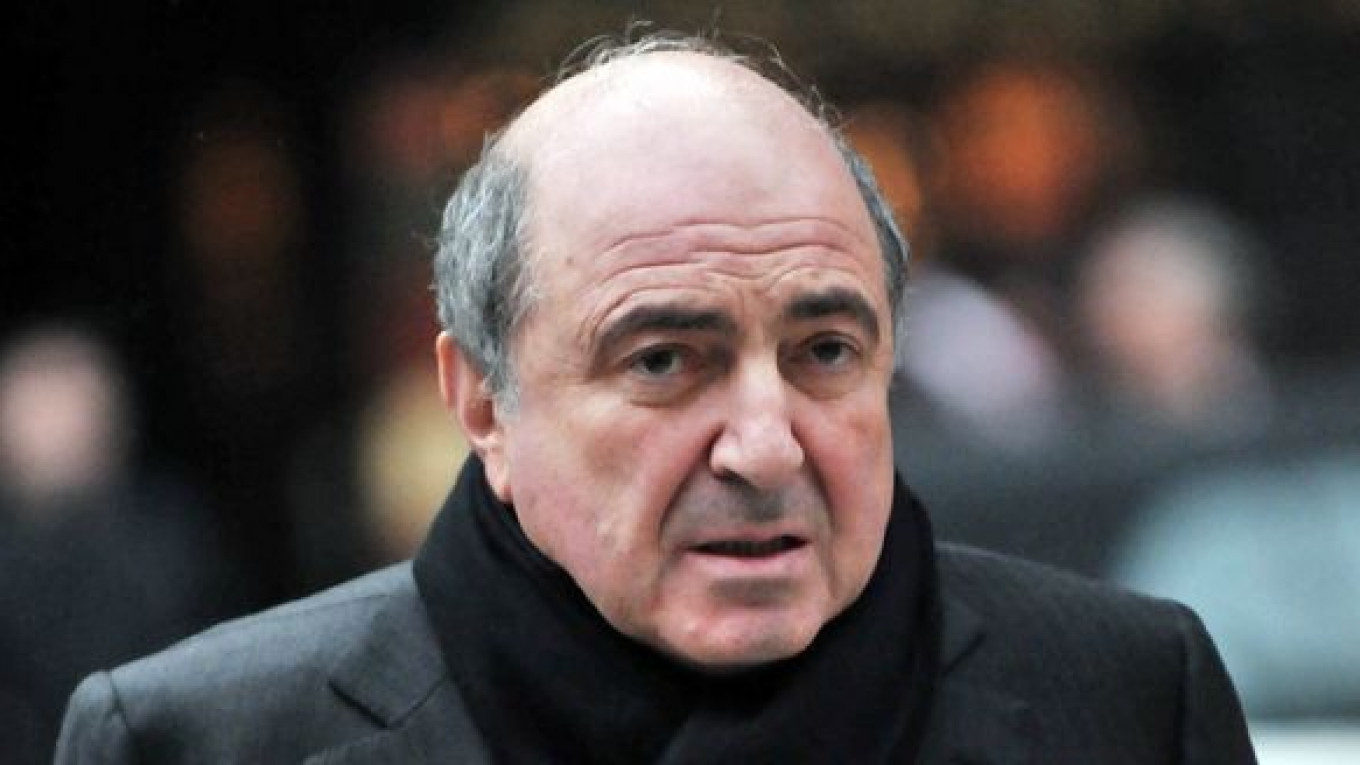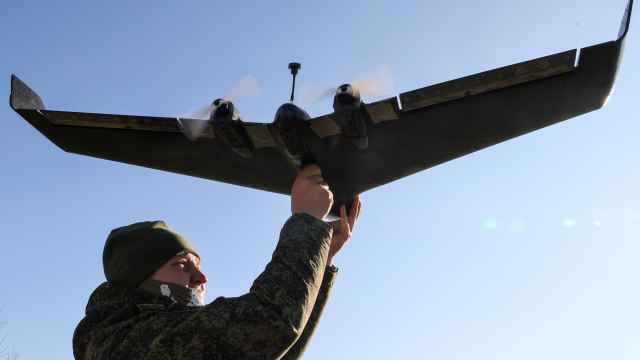WINDSOR, England — British police believe that foul play cannot be completely ruled out in the death of Russian tycoon Boris Berezovsky, whose body was found over the weekend with a piece of material around his neck, an inquest heard on Thursday.
Berezovsky, a sworn enemy of President Vladimir Putin, was found dead on Saturday in a luxury mansion in Ascot, an affluent English town near Queen Elizabeth's Windsor Castle, west of London.
He survived years of intrigue, power struggles and assassination attempts in Russia, but had to flee to London in 2000 after a bitter falling-out with the Kremlin leader.
Police have said there was no sign of a struggle and that the 67-year-old's death was "consistent with hanging," suggesting that he probably killed himself.
But when asked whether any third-party involvement was possible, Detective Inspector Mark Bissell told the inquest: "That cannot be completely eliminated." He added that at this stage, there was nothing to support that suspicion, however.
The inquest was adjourned to a date yet to be fixed, and toxicology tests on the body, which was formally identified by Berezovsky's daughter Elizaveta, are still under way. Test results are likely to take several weeks.
Bissell said Berezovsky had been found with a "ligature" around his neck and a piece of similar material on the shower rail above him. He did not say what kind of material it was.
Berezovsky, who was last seen alive at around 10:30 p.m. London time on Friday, was among the powerbrokers who engineered Putin's ascent to power in Russia, but later became his No. 1 enemy.
Britain gave him political asylum in 2003 on the grounds that his life would be in danger if he went back home.
His associates have hinted he was depressed after losing a $6 billion court case last year against tycoon Roman Abramovich, when a judge humiliated him publicly by saying he was an unimpressive and unreliable witness.
"He was depressed. He said so himself," said Alex Goldfarb, a friend of Berezovsky. "But it was under control. I was not worried about him in that respect."
Other people close to Berezovsky have said they are not convinced by the official account.
"In this past year, of course he was depressed, but having known him for a long time, I can say he always had ups and downs, and he was always capable of recovering, standing up and carrying on," said Andrei Sidelnikov, an opposition figure.
"He was such an optimistic man and none of his friends and associates can possibly believe that he committed suicide."
The coroner in charge of the inquest said he would allow a funeral to take place once he had enough information.
For many, Berezovsky personified the decade of wild capitalism, chaos and violence that followed the Soviet fall. He left a trail of enemies in Russia and beyond.
"My father was not the typical parent, nothing about him was ordinary," his daughter Anastasia said in a tribute. "He has colored my life in infinite ways, and I know that what he concerned himself most with was making all his children proud."
Related articles:
A Message from The Moscow Times:
Dear readers,
We are facing unprecedented challenges. Russia's Prosecutor General's Office has designated The Moscow Times as an "undesirable" organization, criminalizing our work and putting our staff at risk of prosecution. This follows our earlier unjust labeling as a "foreign agent."
These actions are direct attempts to silence independent journalism in Russia. The authorities claim our work "discredits the decisions of the Russian leadership." We see things differently: we strive to provide accurate, unbiased reporting on Russia.
We, the journalists of The Moscow Times, refuse to be silenced. But to continue our work, we need your help.
Your support, no matter how small, makes a world of difference. If you can, please support us monthly starting from just $2. It's quick to set up, and every contribution makes a significant impact.
By supporting The Moscow Times, you're defending open, independent journalism in the face of repression. Thank you for standing with us.
Remind me later.






